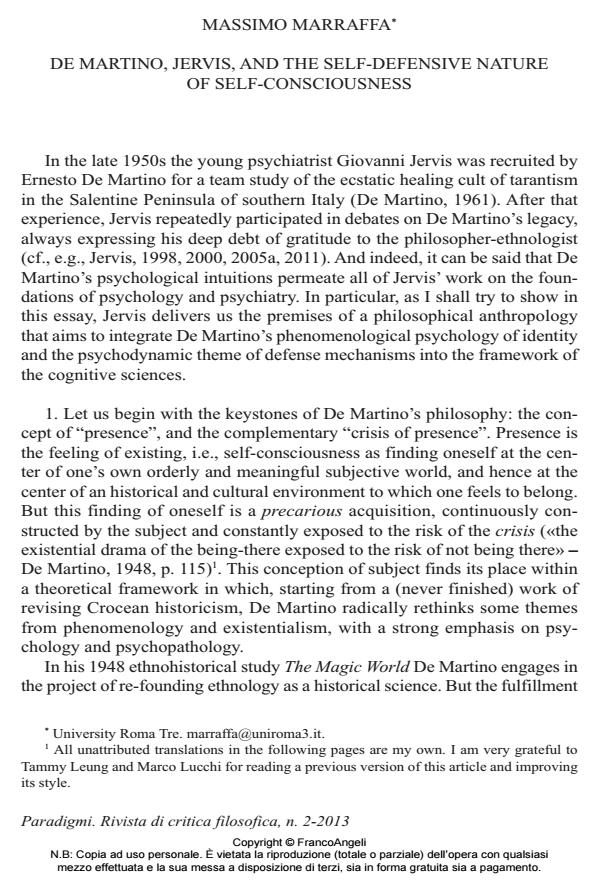De Martino, Jervis, and the Self-Defensive Nature of Self- Consciousness
Journal title PARADIGMI
Author/s Massimo Marraffa
Publishing Year 2013 Issue 2013/2
Language Italian Pages 16 P. 109-124 File size 116 KB
DOI 10.3280/PARA2013-002009
DOI is like a bar code for intellectual property: to have more infomation
click here
Below, you can see the article first page
If you want to buy this article in PDF format, you can do it, following the instructions to buy download credits

FrancoAngeli is member of Publishers International Linking Association, Inc (PILA), a not-for-profit association which run the CrossRef service enabling links to and from online scholarly content.
In the late 1950s the psychiatrist Giovanni Jervis joined in Ernesto De Martino’s team study of the ecstatic healing cult of tarantism in the Salentine Peninsula of southern Italy. After that experience, Jervis repeatedly participated in debates on De Martino’s legacy, always expressing his deep debt of gratitude to the philosopher-ethnologist. And indeed, it can be said that rethinking De Martino’s psychological intuitions is one of the most important themes in all of Jervis’ work. In particular, as my essay argues, Jervis developed the premises of a philosophical anthropology that fits De Martino’s phenomenological psychology of identity and the psychodynamic theme of defense mechanisms into the conceptual framework of the cognitive sciences.
Keywords: Crisis of presence, dehistoricization, defense mechanisms, selfidentity, self-consciousness
- Disentangling the self. A naturalistic approach to narrative self-construction Massimo Marraffa, Alfredo Paternoster, in New Ideas in Psychology /2016 pp.115
DOI: 10.1016/j.newideapsych.2015.08.003
Massimo Marraffa, De Martino, Jervis, e la natura autodifensiva dell’autocoscienza in "PARADIGMI" 2/2013, pp 109-124, DOI: 10.3280/PARA2013-002009